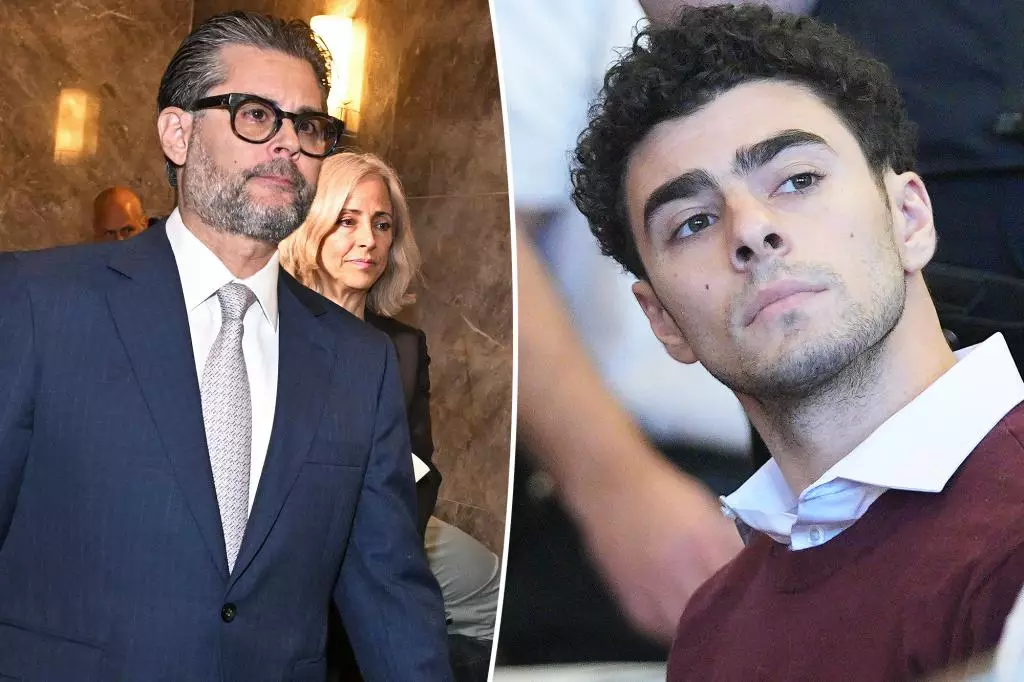The world of crime and punishment often attracts a range of professionals, each carving out a niche in the complex landscape of legal representation and consultancy. One notable figure in this arena is Craig Rothfeld, a prison consultant who has recently taken on the case of Luigi Mangione. Mangione has been accused of a high-profile crime, allegedly involved in the murder of UnitedHealthcare CEO Brian Thompson. Rothfeld’s experience in the system—having served time for white-collar offenses himself—gives him an insider’s perspective that is invaluable to clients grappling with the daunting realities of incarceration.
Rothfeld’s insights are particularly striking when he discusses the psychological toll that prison can take on individuals. In past interviews, he has described the prison environment as a “Byzantine black hole,” suggesting a sense of overwhelming disorientation and helplessness that many inmates experience. This sentiment becomes particularly poignant when considering his previous work with disgraced media mogul Harvey Weinstein. Rothfeld has been instrumental in guiding Weinstein through the shadows of prison life, providing him both legal and emotional support.
The Psychological Burden of Incarceration
As Mangione prepares to enter this unforgiving world, he faces not only the weight of his legal problems but also the mental strain associated with his pending confinement. The early days of imprisonment are characterized by confusion and fear, according to Rothfeld. For many inmates, including high-profile figures, the loss of agency upon entering the prison system can be deeply unsettling. It is during these critical initial days that inmates often grapple with the stark realization of their new reality, shackled both physically and metaphorically.
Weinstein’s ongoing saga illustrates the broader issues at play. After being convicted of numerous sex crimes, he is facing ongoing legal challenges and health issues that further complicate his situation. Rothfeld has served as Weinstein’s medical advocate, and that role emphasizes the intersection of health care and incarceration. Weinstein’s health crises, which have included serious ailments like diabetes and a cancer diagnosis, underscore the pressing need for adequate medical care within the prison system—a concern often glossed over by the media.
High-Profile Inmates: The Crossroads of Fame and Incarceration
The convergence of celebrity and crime creates a unique spectacle that garners extensive media coverage. Mangione’s situation is particularly striking as he is set to share the same facility as Sean “Diddy” Combs, another high-profile figure facing serious legal issues, including charges related to sex trafficking and racketeering. The juxtaposition of their cases highlights a troubling trend; that fame does not preclude individuals from becoming embroiled in serious criminal matters.
As Mangione navigates his impending trial, the stakes are higher than ever. The charges against him are severe, and with Rothfeld’s insights, he may have the tools to face this tumultuous journey. Each of these cases serves as a reminder that those who find themselves on the wrong side of the law must grapple with the consequences of their actions, often compounded by the relentless scrutiny of public opinion.
With a perfect storm of health struggles, incarceration challenges, and the weight of high-profile allegations, the narratives surrounding Mangione and Weinstein provide a potent commentary on the intricate dynamics of power, fame, and justice.

